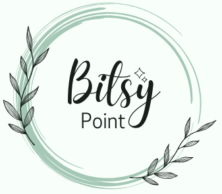
Starting a business involves several steps. The steps vary depending on the type of business, purpose, and its location!
Many of us think about starting a business. Some of us may have solid ideas what is it all about. Some says it is like your child. Its a lot of sweat, tears and joy to go through. Today let us explore some aspects of it.
Steps to start a business
Starting any business involves several steps. The steps vary depending on the type of business, purpose, and its location (if location based). Remember that starting a business can be challenging, and there will likely be setbacks along the way. Flexibility, perseverance, and a willingness to adapt are key qualities for successful entrepreneurs. Additionally, seeking advice and mentorship from experienced business professionals can be invaluable throughout the process.
Here are the general steps to get started:
1. Idea Generation and Research
Why idea generation and research is key to start a business?
The first thing to consider is that “what business I want to do?” “at which location?” and “what is the purpose?” Either you have a product that you like to introduce to the market which is better or a similar product with a more attractive price. Research is required to see if there is a demand for the product or products to survive.
2. Business Planning
How to do the business planning? What involves in business planning?
There are several aspects of planning that must be done early to have a chance of a viable business. This planning involves, among others, considering supply, distribution, finance, product expertise, and marketing.
3. Recruitment
If your business is very specific for example selling your crafts you are your best employee with many hats such as to contract a supplier or find out the raw material source at a preferable rate, work for marketing or find out the places to promote your products either online or local events, ensure you have a financial plan and track all your finances from the beginning. However, if you are thinking a bit medium scale business, then you will perhaps consider to
Build a team with a few key people to help with all the planning activities. Each of them are like the pillars of the business; they should have proper knowledge about the steps they take or have someone to guide them. For example, hire a marketing agency, contract a supplier, distributor, hire a finance professional.
4. Accounting and Record-Keeping
What is record-keeping in business?
You will take many steps where a finance / accounting professional will help let you decide the best course of action from the finance perspective for year end tax or decision making based on the various financial / accounting position or need of the intended business.
5. Business Name and Branding
A name that is suitable, memorable, and especially unique name is important, so it does not sound like an existing business or incur intellectual property lawsuits. Once a proper name is selected it is better to get a logo to further enhance the business with a brand.
6. Legal Structure and Registration
At this stage a legal structure is required to make sure that the business is legally recognized and registered for the intended purpose. For example, a proprietorship (single owner) or a joint venture or a corporation has distinct characteristics that impact various aspects.
7. Business Location and Infrastructure
there are types of business that is location specific which makes it impossible without a consideration.
8. Finances / Funding
Business requires funds to begin with, which may have multiple sources. If the funding is generated within the business, it will keep the profit. Finance charges sometimes eat a big part of the profit which needs to be considered when assessing the available and required funds.
9. Business Insurance
Do my business needs insurance?
Business insurance protects the business from various risks. One should reach out to insurance providers to see what insurance product may protect the business if there are certain incidents. General liability, commercial property, product liability, business interruption insurance etc. When the premiums are not large, the benefits are great should an incident happen.
10. Marketing, Sales, Supply, and Distribution Strategy
Business needs to consider some sort of marketing to reach out to intended customers. A marketing agency can help with that. Decide if the sales are only for a community, for the country, or for global customers in different countries. Where are your suppliers? Do you have an understanding that your supplies will be smooth. What is the distribution channel to reach out to the customers with your product? All these need to be considered and if possible, see if you have an advantage on all or some of them.
11. Compliance
Business always needs to meet the legal and regulatory compliance to smoothly do the business. Consider environment, biodiversity, wage laws etc. Violations of regulatory compliance often result in legal punishment, including federal fines as well as bad press and lost trust.
Once you have all the above you will clearly see the time when you can open your business smoothly.
I want to conclude with an example, sometimes business may have setbacks and times of prosperity depending on the economic situation. For example, before Covid, online business was booming but during Covid those businesses saw a tremendous prosperity such as Amazon.
